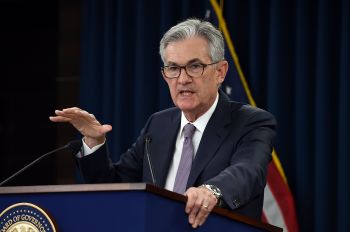Banks find themselves in a tough spot
TEXT OF STORY
Kai Ryssdal: I guess it took Wall Street a day or so to fully absorb the mean things the Fed said yesterday about the economy because “sell” was the word of the day in stocks.
But back to what the Fed did say yesterday: It’s not going to add more money to the economy. It is, though, going to reinvest the cash it put in during the financial crisis toward buying government debt and helping push interest rates lower. That money is supposed to help banks shore up their balance sheets and at at the same time, somehow encourage them to lend more.
Marketplace’s Alisa Roth reports.
Alisa Roth: Bankers say they’re in a tough spot. They’re being told to hold lots of money in their reserves in case things go south. They’re also being told to lend more money to encourage the economy. But they’re also supposed to be very careful about whom they lend to.
Karen Petrou: We, as your regulators, really encourage you to go out and make loans. As long as they’re prudent.
Karen Petrou is a banking analyst at Federal Financial Analytics. She says the problem is with that word — prudent. For years, the banks took on more risk. Then the financial crisis came. And now, banks don’t know what prudent is supposed to mean. Petrou says the regulators’ guidance isn’t helping.
Petrou: And here are some things that make them prudent. But then there are some other things that might not. At which point, the banks look at those statements and scratch their heads and say, “OK, now what do I know?”
What they say they know is that there aren’t any borrowers. That potential borrowers — both regular people and companies — are just too anxious to take on more debt. And that you can’t force people to borrow. The housing market is a good example. Mortgage rates are ridiculously low. There have been all kinds of tax credits and buyer incentives, but nobody’s taking out loans to buy houses.
Petrou: And nothing a bank can or frankly should do can make them — until the macro-economy recovers and people feel better about their job prospects and their neighborhoods and all the other criteria that drives getting a home purchase mortgage.
There is one way to make people borrow: Make them an offer that’s so good, it overcomes their anxiety. Gerard Cassidy follows banks for RBC Capital Markets. He says we probably don’t want to go there.
Gerard Cassidy: Imagine that, if you really want to go out there and lend today, it’s very easy to create loan demand, you just need to lower your lending standards.
And we all know what the consequences of lowering our standards can be.
In New York, I’m Alisa Roth for Marketplace.
There’s a lot happening in the world. Through it all, Marketplace is here for you.
You rely on Marketplace to break down the world’s events and tell you how it affects you in a fact-based, approachable way. We rely on your financial support to keep making that possible.
Your donation today powers the independent journalism that you rely on. For just $5/month, you can help sustain Marketplace so we can keep reporting on the things that matter to you.


















